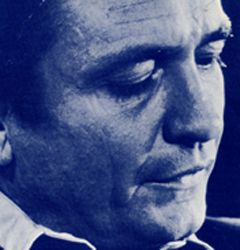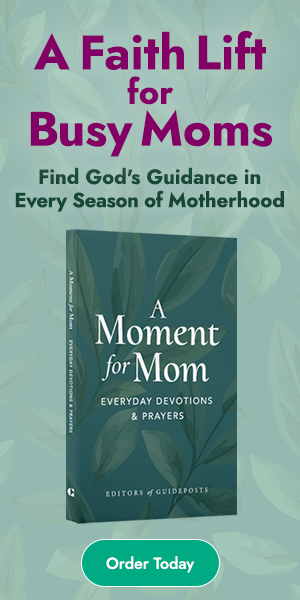The old man asked, “Are you feeling better now, Johnny?” I’d been lying there a long time, staring at the ceiling and fighting off the sickness. Now I looked at the old man. He looked like he was behind bars. But I knew that I was the one behind the bars, only I didn’t know where the jail was or how I got there.
The old man said, “Let me know when you’re ready.”
I forced myself to sit up. “I’m ready now.”
Ready for what? I wasn’t sure why I’d been arrested. I figured it had something to do with the pills. Once before the pills had put me behind bars, but that time I was lucky.
That was in 1965. I had gone into Mexico to get a supply of the pills I felt I needed to stay alive. As I was re-entering at El Paso, the customs inspector found the pills. That time I spent a day in jail. Because it was my first arrest, the judge let me off with a year’s suspended sentence. There was a newspaper reporter in the courtroom; his story went out on the wires, and that’s how people found out I was an addict.
A lot of people already knew. By then, I had been on pills five years. I took pep pills to turn me on enough to do a show. Then I took depressants to calm down enough to get some sleep. That, at least, was what my friends said. They said I was working too hard and traveling too much and trying to squeeze too much out of every day. They said maybe I should take some time off.
I knew better. I tried pep pills the first time because they happened to be available one day when I was in the mood for a new kick. The high they gave me was beautiful. I felt I owned the world, and the world was perfect during those lofty moments. I couldn’t believe that a couple of little pills could contain so much beauty and joy. I stayed on pills because they made me feel great. If people wanted to give excuses for my habit, I let them.
Then I began to realize that the highs were getting lower. The few pills I was on every day weren’t enough anymore. I had to go from a few to several, then to dozens. Still that old feeling wasn’t there. I was always nervous and tense and irritable. I didn’t want to eat. I couldn’t sleep. I started losing weight.
So I went on depressants, looking for lows, looking for peace. When I found peace, I couldn’t trust it because I knew it was a fleeting peace. Soon I would crave to get high, and the highs would not come to me.
After the El Paso mess, I took an apartment with a friend who was also on pills. One day when my supply ran out, I remembered that he had some in his car. He was asleep and I couldn’t find his keys, so I went out and broke into the car. When he later accused me of this, I denied it violently and we almost fought. He knew I was lying, and I knew he did. Next day, I admitted it, and he said he understood. We were like two cowardly kids forgiving each other for being afraid of the dark.
In time, I became afraid of everything. I would be a nervous wreck before a show; I was never sure of myself during a performance; I didn’t believe people when they said things had gone all right. Sometimes I was too sick to work. Sometimes I didn’t even show up. It didn’t take booking agents long to stop risking their money on me. Even though I knew this meant a loss of income to others in the show, people who were good friends, I didn’t care. I didn’t care about anything.
I knew I was killing myself. I had seen drugs kill others. Whatever drug an addict is hooked on, he has to keep increasing his daily dosage to feel anywhere near normal. This is the nature of addiction. The day comes when he takes the overdose that kills him. Knowing this, I accepted early death as the inescapable fate of addicts: There was just no other way out. Even when I thought of all the things I had to be thankful for, I could find no hope for myself, no chance for change.
I was 12, I remembered, when electricity came to the small Arkansas farm where I was raised. Dad bought a radio, and I’ll never forget the first Saturday night I heard the exciting country music from the Grand Ole Opry, in Nashville. That moment, I discovered my future. Right away, I started writing my own country songs, and I told everybody I was going to become an entertainer. I guess only my mother believed me. We were poor, and so she took in laundry to pay for a few voice lessons. At 17, I earned my first money at performing: the $15 first prize in an amateur contest. Then I learned to play the guitar.
In 1954, I attended a radio-announcing school, hoping that becoming a disc jockey might open doors to performing. To earn a living, I sold houseware door-to-door. I got to know guitarist Luther Perkins and bassist Marshall Grant. We put together an act; we rehearsed a lot; we worked whenever we could, whether or not we got paid. After a year, we agreed that the only way we could find out if we were ready for the Big Time was to audition for somebody big.
We auditioned for Sun Records, which led to our first recording. This led to a two-year contract at the Grand Ole Opry.
We made more recordings. We went on the road. We became known. By 1960 we had advanced enough to put together a show of our own. Then I moved on to the high of pills.
By 1967, I was on the verge of a nervous breakdown, and I knew it. I was usually on a hundred pills a day, but I got no pleasure from them, no peace. I couldn’t stand my life, but I couldn’t find my way out of it. One day my friends talked to me about entering a mental institution, and the thought of that completely shattered me. I got into my car, well supplied with pills, and headed south. I remember crossing the Georgia border. Next thing I knew, I was staring at a ceiling and an elderly jailer was asking me if I felt better.
I got up. He unlocked the door. I asked, “How did I get here?”
He said, “One of the night men found you stumbling around the streets. He brought you in so you wouldn’t hurt yourself.”
I followed him down a corridor and into his office, and I asked, “How much time do you think I’ll get for this?”
He shook his head. “You’re doing time right now, Johnny, the worst kind.” He handed me an envelope. “Here are your things.” As I was putting things into my pockets, he said, “I’m a fan of yours, Johnny. I’ve always admired you. It’s a shame to see you ruining yourself. I didn’t know you were this bad off.”
I’d heard that sad song before, from concerned friends. I said, “Yeah. Sure.”
He said, “I don’t know where you think you got your talent from, Johnny, but if you think it came from God, then you’re sure wrecking the body He put it in.”
I said, “Yeah. Sure. Thanks. Can I go now?” He nodded.
That morning, as I stepped into the warm sunshine, I took a quick but deep look at my life over the past seven years, and I knew that I was a better man than that.
Maybe it was the reference to God that suddenly cleared my mind. I had been raised by religious parents; faith had always meant a lot to me; I have tried to express it in some of my songs. But until that morning it hadn’t occurred to me to turn to God for help in kicking my habit.
I remembered this: “Know ye not that your body is the temple of the Holy Spirit which is in you, which ye have of God, and ye are not your own.” This helped convince me that I must try to break my habit. But how?
And I remembered this: God had given me a free will, and I had freely used it in deciding to experiment with the drugs which had now robbed me of it. I realized that to be free again I would need all the will power I could acquire and I knew this power could come only from God, Who had created me free. I asked Him to go to work on me, then and there.
Back in Nashville, I went to June Carter and Marshall Grant, and I told them, “I’m kicking pills, as of now. I don’t expect it to be easy, so I’ll need your help. See to it that I eat regular meals. See to it that I keep regular hours. If I can’t sleep, sit and talk to me. If we run out of talk, then let’s pray.”
We prayed a lot. I am a free man now, as I have been since that morning when I discovered that I could be once again.
Because of the kind of work I do, it is difficult to sweep past mistakes under the rug. Every once in a while, I meet some youngster who knows I used to be an addict, as he is now, and he asks me what he can do to kick his habit. I tell him what I learned, “Give God’s temple back to Him. The alternative is death.”






